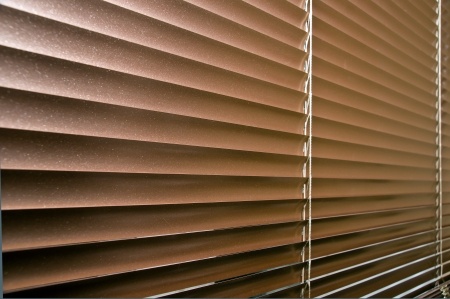Window Blinds Still Pose Risk of Death to Young Children
January 11, 2016 | Category: Defective Products | ShareConsumer Product Safety Commission (CPSC) chairman Elliot Kaye said in 2015, “The industry's voluntary guidelines and improvements are not working.”
Currently there still are no mandatory standards in place for window blind safety. According to Mr. Kaye after years of talking with the industry, at least six voluntary design changes, and what Mr. Kaye calls “foot-dragging” on the part of the window blind industry, federal regulators in 2014 did take steps toward setting mandatory standards and banning accessible cords.
What happened?
Because of pressure from the Clinton administration in the mid-1990’s for mandatory regulation, the window blind industry through the Window Coverings Manufacturing Association (WCMA), adopted some voluntary product safety standards. The focus of the voluntary standards was on eliminating looped pull cords, which could form a noose and represent a safety hazard for young children.
 The CPSC reports that at least 332 children, most of whom were under the age of two, were fatally strangled by window cords over the last thirty years. In addition, 165 were injured. These injuries included permanent brain damage or quadriplegia which required life-long care and therapy according to Parents for Window Blind Safety, a nonprofit organization. In an NBC News report, the CPSC said that, “Almost every month, on average, another child dies from window cord strangulation.” Window blind cords are on the commission’s list of the top five “hidden hazards” in the home.
The CPSC reports that at least 332 children, most of whom were under the age of two, were fatally strangled by window cords over the last thirty years. In addition, 165 were injured. These injuries included permanent brain damage or quadriplegia which required life-long care and therapy according to Parents for Window Blind Safety, a nonprofit organization. In an NBC News report, the CPSC said that, “Almost every month, on average, another child dies from window cord strangulation.” Window blind cords are on the commission’s list of the top five “hidden hazards” in the home.
What was done to fix the problem?
In the 1990’s the CPSC and the WCMA issued a joint recall instructing consumers to cut the looped cords and tie tassels onto each of the ends. The industry also agreed to distribute free retrofit kits.
The fix failed.
Even with the CPSC and WCMA fix in place, it failed to stem the tragedies of the death of young children. Even though cut, the cords continued to strangle the children. Another area not addressed in the original plan was the possibility that the inner cords that hold the slats together could present hazards, and they did.
What is happening now?
The CPSC does not have the legal authority to just ban hazardous products without a lengthy process, so Mr. Kaye has been putting pressure on manufacturers and retailers.
- In 2015 the WCMA launched the “Best for Kids” program. This program according to WCMA was the industry’s first third-party certification program designed to help consumers and retailers identify window covering products that are certified as the best suited for use in homes with young children.
- Two major retailers, Target and Ikea, have stopped selling the blinds. Walmart, Home Depot and Lowes pledged to ban them by 2018.
There may be a solution.
The solution may be “cordless window coverings” which are available. The CPSC recommends using only cordless window coverings in homes where children either live or visit.
What to do if you have corded window coverings?
The CPSC recommends the following:
- Examine all shades.
- Make sure no accessible cords are on front, side, back.
- Make loose cords inaccessible.
- Install tension devices for looped bead chains or nylon cords.
- Do not place cribs, beds, furniture close to windows.
- Replace with blinds that have inaccessible cords.
“Manufacturers have a responsibility to produce products that are safe for use by consumers. Under product liability laws, they can be held legally responsible for injuries caused by their products if some product defect or negligence is involved. Window blind coverings are dangerous if they are corded. Should your child be harmed by a window blind, call the personal injury team at Spivey Law Firm, Personal Injury Attorneys, P.A.,” said Fort Myers Product Liability Attorney, Randall Spivey.
Fort Myers Defective Product Attorney, Randall L. Spivey is a Board Certified Trial Attorney – the highest recognition for competence bestowed by the Florida Bar and a distinction earned by just one (1%) percent of Florida attorneys. He has handled over 2,000 personal injury and wrongful death cases throughout Florida. For a free and confidential consultation to discuss your legal rights, contact the Spivey Law Firm, Personal Injury Attorneys, P.A., in Lee County at 239.337.7483 or toll free at 1.888.477.4839,or by email to Randall@SpiveyLaw.com. Visit SpiveyLaw.com for more information. You can contact Spivey Law Firm, Personal Injury Attorneys, P.A.in Charlotte County at 941.764.7748 and in Collier County 239.793.7748.

